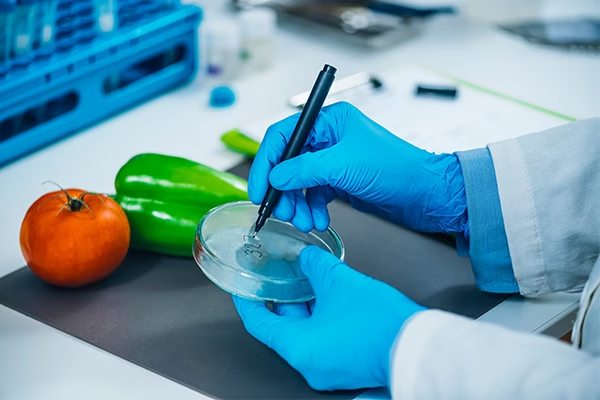In today’s highly competitive food industry, maintaining the highest levels of safety and compliance is more than a legal requirement—it’s a commitment to consumer trust. As organizations expand globally, the demand for professionals who can uphold these safety standards continues to rise. This is where the role of a certified HACCP auditor becomes critical. These specialists are equipped to assess, monitor, and improve food safety systems, ensuring businesses not only comply with regulations but also maintain a reputation for reliability and quality.
Understanding the Role of a Certified HACCP Auditor

HACCP, or Hazard Analysis and Critical Control Points, is a globally recognized system designed to identify, evaluate, and control food safety hazards. A certified HACCP auditor plays a vital role in evaluating whether organizations are effectively implementing HACCP systems and complying with international food safety standards.
Their responsibilities extend beyond compliance audits. They also provide insights into process improvements, risk management, and corrective actions. By identifying gaps and suggesting improvements, these auditors help organizations streamline their processes while prioritizing consumer safety.
Why Certification Matters
Becoming a certified HACCP auditor is more than just a credential—it is a mark of expertise. Employers, regulators, and clients view certification as evidence of an individual’s capability to handle complex food safety audits with professionalism and precision.
Certification also provides auditors with recognition across international markets. With food safety laws becoming increasingly stringent worldwide, organizations prefer working with professionals who can bring credibility to their compliance efforts.
Key Skills Required for Certified HACCP Auditors
To thrive in this role, professionals must develop a combination of technical knowledge and soft skills. Below are some of the essential skills:
1. In-depth Knowledge of HACCP Principles
Auditors must master the seven HACCP principles, which include hazard analysis, identifying critical control points, and establishing monitoring procedures. A strong foundation ensures accurate and effective audits.
2. Analytical and Critical Thinking
The ability to analyze processes, identify risks, and recommend corrective actions is crucial. A certified HACCP auditor should be able to critically assess food safety systems and find practical solutions.
3. Communication and Interpersonal Skills
Auditing involves engaging with multiple stakeholders, from managers to frontline staff. Clear communication and the ability to explain findings constructively are key to driving improvement.
4. Knowledge of International Standards
Food safety is not limited to HACCP alone. Auditors must understand global standards such as ISO 22000, FSSC 22000, and related frameworks. This makes them valuable across industries and geographies.
5. Attention to Detail
A successful auditor notices the smallest inconsistencies or non-compliance issues. Attention to detail ensures accuracy and reliability in audits.

Career Benefits of Becoming a Certified HACCP Auditor
Choosing this career path offers a wide range of advantages, making it one of the most rewarding roles in the food industry.
1. High Demand Across Industries
Food manufacturing, hospitality, retail, and catering companies all require auditors to ensure compliance. This creates diverse career opportunities worldwide.
2. Career Growth and Leadership Roles
Certified auditors often progress to senior roles, such as food safety managers, quality assurance heads, or consultants. Their expertise places them in leadership positions where they guide organizations in strategic compliance.
3. International Recognition
With globalization, food safety standards are becoming universal. A certified HACCP auditor is recognized across international borders, making it easier to secure opportunities abroad.
4. Contribution to Public Health
This career is not just about compliance—it is about protecting consumers. By ensuring safe food practices, auditors directly contribute to reducing risks of contamination and foodborne illnesses.
5. Competitive Salary and Professional Prestige
Given their specialized expertise, certified auditors often enjoy higher salaries compared to general quality control professionals. Their credibility also commands respect in the industry.
The Role of FSSC Internal Auditor Training
While HACCP certification provides a solid foundation, FSSC internal auditor training enhances an auditor’s knowledge of global food safety standards. FSSC 22000 is a certification scheme that aligns with ISO standards and is widely accepted by major food companies.
Professionals who undergo FSSC internal auditor training gain advanced skills in auditing management systems, risk assessment, and corrective action planning. This training complements HACCP certification and broadens an auditor’s ability to work across diverse industries.
In practice, organizations often prefer auditors who have both HACCP and FSSC training, as this combination equips them to evaluate food safety systems holistically. Together, these credentials provide auditors with the expertise to ensure compliance with both operational and management system standards.
How to Start Your Journey as a Certified HACCP Auditor
Becoming a certified HACCP auditor requires a step-by-step approach:
- Educational Foundation – A background in food science, microbiology, or related fields is often preferred.
- HACCP Training – Complete an accredited HACCP training program that covers all principles and practical applications.
- Work Experience – Gain hands-on experience in food safety management, quality assurance, or related fields.
- Certification Exam – Apply for and pass the certification exam from a recognized body.
- Continuous Learning – Engage in further training, such as FSSC internal auditor training, to enhance skills and stay updated with evolving standards.
Conclusion
In an industry where safety and compliance are non-negotiable, the role of a certified HACCP auditor is indispensable. Equipped with the right skills and supported by additional qualifications like FSSC internal auditor training, these professionals ensure food businesses operate with excellence and integrity. They not only safeguard consumer health but also help companies maintain their market reputation and meet global compliance demands.







